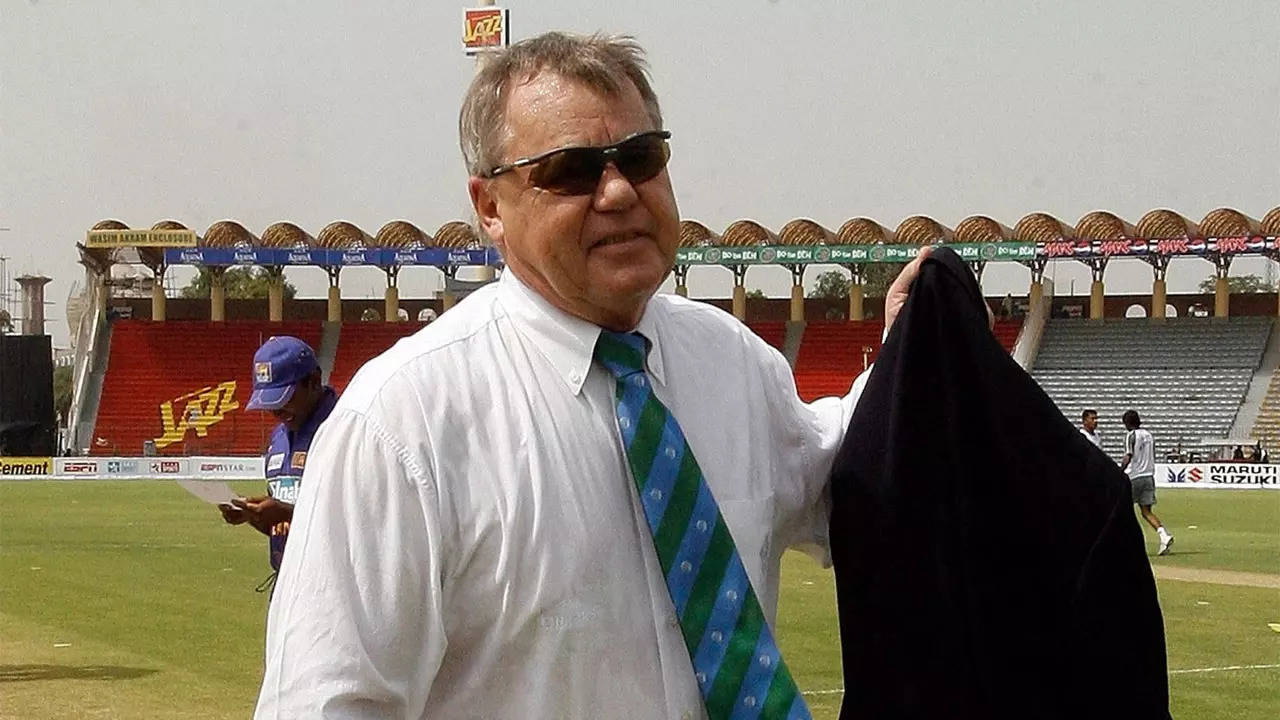NEW DELHI: Former South Africa all-rounder and country’s first coach in the post-apartheid era Mike Procter, died aged 77 on Saturday, his family announced.
“He suffered a complication during surgery and while in ICU went into cardiac arrest. He became unconscious and unfortunately never woke up,” his wife Maryna said.
Procter, a stalwart with English county Gloucestershire, was a fierce fast bowler and hard-hitting batter who played seven Test matches, his international career stunted by South Africa’s isolation due to apartheid.
But upon their return in 1991, he led the side as coach, taking them to the semi-finals of the World Cup in Australia the following year.
He was later also appointed to the International Cricket Council’s panel of match referees and also served as South Africa’s convener of selectors.
On Monday his family had revealed that he had suffered a “cardiac incident” while recovering in a hospital intensive care unit following routine surgery.
Procter was being treated in a hospital near his hometown, the coastal city of Durban.
Procter’s international playing career with South Africa was cut short in 1970 when his country was banished from world cricket because of its apartheid government.
Before the ban, South Africa won six of the seven Tests in which he played, all against Australia.
Procter was renowned primarily as a fearsome fast bowler, taking 41 wickets at an average of 15.02 runs in his seven Tests.
But he was also a flamboyant batsman, and equalled a world batting record when he hit six first-class centuries in successive innings.
Post-democracy, South Africa returned to international cricket, Procter became coach of the international side and led them to the semi-finals of the 1992 World Cup.
Procter played first-class cricket for 16 years, including 14 seasons with English county Gloucestershire, five of them as captain, where he achieved legendary status.
In South Africa, he played most of his cricket for Natal, the province where he was born.
His six successive centuries were made for the then Rhodesia between 1970 and 1971, culminating in a career-best 254 against Western Province.
He scored 21,082 runs in first-class cricket at an average of 36.92, hitting 47 centuries, and took 1,357 wickets at an average of 19.07 runs.
He leaves behind his wife and two children.
(With inputs from AFP)
“He suffered a complication during surgery and while in ICU went into cardiac arrest. He became unconscious and unfortunately never woke up,” his wife Maryna said.
Procter, a stalwart with English county Gloucestershire, was a fierce fast bowler and hard-hitting batter who played seven Test matches, his international career stunted by South Africa’s isolation due to apartheid.
But upon their return in 1991, he led the side as coach, taking them to the semi-finals of the World Cup in Australia the following year.
He was later also appointed to the International Cricket Council’s panel of match referees and also served as South Africa’s convener of selectors.
On Monday his family had revealed that he had suffered a “cardiac incident” while recovering in a hospital intensive care unit following routine surgery.
Procter was being treated in a hospital near his hometown, the coastal city of Durban.
Procter’s international playing career with South Africa was cut short in 1970 when his country was banished from world cricket because of its apartheid government.
Before the ban, South Africa won six of the seven Tests in which he played, all against Australia.
Procter was renowned primarily as a fearsome fast bowler, taking 41 wickets at an average of 15.02 runs in his seven Tests.
But he was also a flamboyant batsman, and equalled a world batting record when he hit six first-class centuries in successive innings.
Post-democracy, South Africa returned to international cricket, Procter became coach of the international side and led them to the semi-finals of the 1992 World Cup.
Procter played first-class cricket for 16 years, including 14 seasons with English county Gloucestershire, five of them as captain, where he achieved legendary status.
In South Africa, he played most of his cricket for Natal, the province where he was born.
His six successive centuries were made for the then Rhodesia between 1970 and 1971, culminating in a career-best 254 against Western Province.
He scored 21,082 runs in first-class cricket at an average of 36.92, hitting 47 centuries, and took 1,357 wickets at an average of 19.07 runs.
He leaves behind his wife and two children.
(With inputs from AFP)
